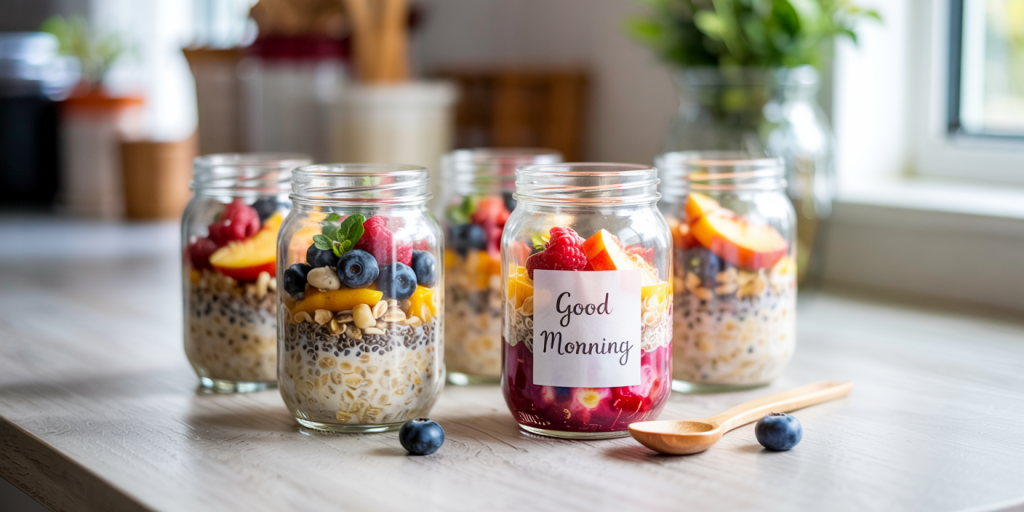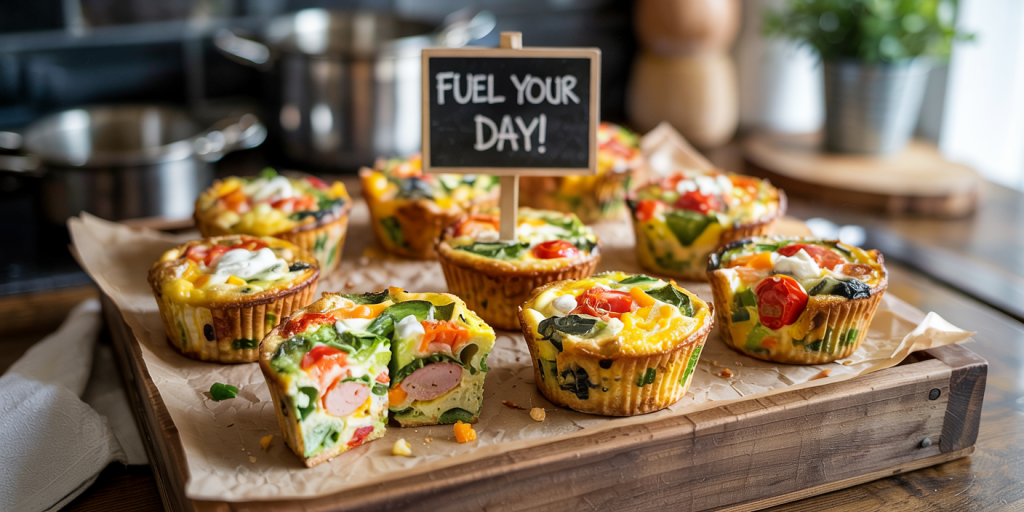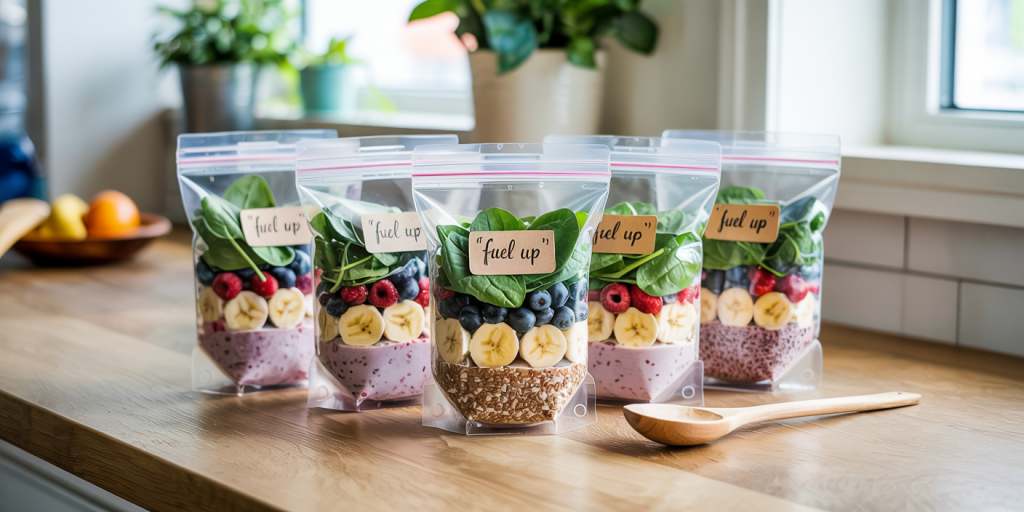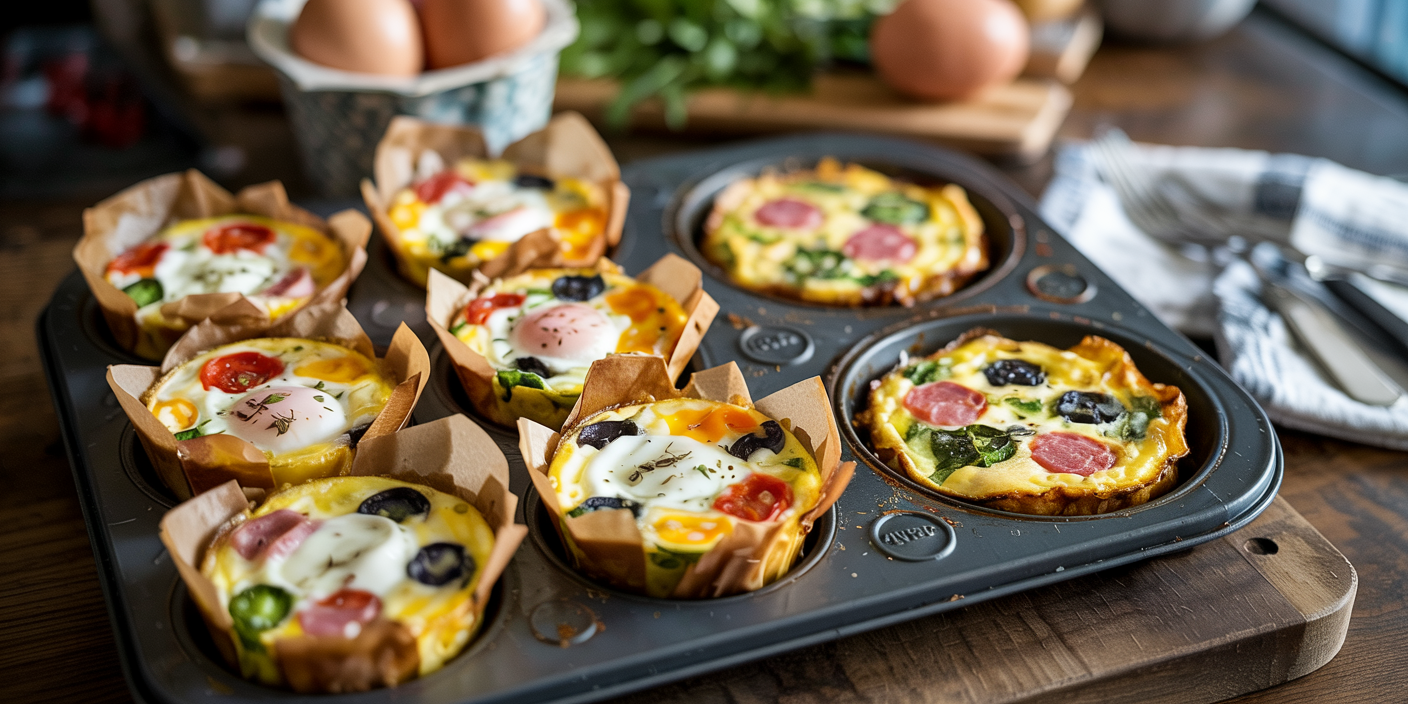Starting your day with a healthy breakfast is crucial for maintaining energy, focus, and overall well-being. However, busy mornings often leave little time for preparing a nutritious meal. Breakfast meal prepping can be an effective strategy to ensure you begin each day with a balanced, flavorful meal without the stress of last-minute cooking. This article explores practical breakfast meal prep ideas designed for a variety of tastes and dietary needs, providing useful examples, nutritional insights, and future perspectives on evolving breakfast trends.
The Importance of Breakfast and Meal Prep Efficiency
Breakfast plays a fundamental role in kickstarting metabolism and replenishing glucose levels after an overnight fast. According to a study published in the *Journal of Nutrition* (2021), individuals consuming a balanced breakfast reported better concentration, improved mood, and higher energy levels throughout the day. Despite these benefits, surveys reveal that nearly 30% of adults skip breakfast regularly due to time constraints.
Meal prep, or preparatory cooking, helps address this by organizing and preparing meals ahead of time. This not only saves time but also encourages healthier food choices. By dedicating a few hours weekly to prepare breakfast options, individuals can avoid reliance on processed, less nutritious options. The convenience gained through meal prepping reduces morning rush stress and supports consistent nutritional habits.
Overnight Oats: A Versatile and Nutrient-Dense Option
One of the most popular breakfast meal prep ideas is overnight oats, thanks to its ease of preparation and high nutritional value. Soaking oats in liquid overnight activates enzymes that aid digestion and boosts nutrient absorption, according to research from *Food Science & Nutrition Journal* (2022). Additionally, oats are rich in beta-glucan fiber, which can lower cholesterol and improve heart health.
Typically, rolled oats are combined with milk or plant-based alternatives and refrigerated for at least 6 hours to achieve a creamy, pudding-like texture. Variations include adding chia seeds, Greek yogurt, fruits (such as berries, bananas, or apples), nuts, and natural sweeteners like honey or maple syrup. These ingredients enhance flavor and provide essential vitamins and minerals, such as vitamin C, potassium, and healthy fats.
For efficient meal prepping, prepare multiple jars at once, each with different fruit or nut combinations to prevent monotony during the week. A typical nutrient breakdown of overnight oats with mixed berries and chia seeds per serving is approximately:

| Nutrient | Amount per Serving (1 cup) |
|---|---|
| Calories | 300 |
| Protein | 10g |
| Fiber | 9g |
| Carbohydrates | 45g |
| Fat | 7g |
This balance makes overnight oats an excellent choice for sustained energy release and satiety.
Egg-Based Meal Preps: Protein-Packed and Customizable
Eggs remain a staple breakfast ingredient due to their high-quality protein and essential nutrients like vitamin D and choline. Preparing egg-based meals in advance is simple and adaptable, fitting various dietary preferences, including vegetarian and low-carb diets.
One practical method is to make egg muffins by whisking eggs with vegetables, cheese, and lean meats such as turkey or chicken sausage. Baking them in muffin tins yields portable, portion-controlled servings that can be refrigerated or frozen. According to USDA data, each egg muffin (average size) provides around 110 calories, 8 grams of protein, and 6 grams of fat, making them filling and nutrient-dense.

Another example is vegetable frittatas, which can accommodate a broader ingredient range. Frittatas often include leafy greens, tomatoes, peppers, and onions baked with eggs. These can be sliced into portions and stored in airtight containers. Meal prepping egg dishes significantly reduces morning preparation time and offers protein to stabilize blood glucose, preventing mid-morning energy crashes.
Smoothie Packs: Fresh Nutrients in a Flash
Smoothies are an increasingly favored breakfast choice for their portability and nutrient density. However, daily smoothie preparation can be time-consuming. Smoothie packs facilitate meal prep by pre-portioning fruits, vegetables, seeds, and powders in sealed freezer bags, ready for blending with liquid in the morning.
An effective smoothie pack might contain spinach, frozen berries, half a banana, flaxseeds, and protein powder. By freezing these pre-mixed ingredients, freshness and nutrient integrity are preserved. Studies indicate that freezing fruits and vegetables can retain up to 90% of their vitamins and antioxidants (*Journal of Food Science*, 2020), making smoothie packs a practical and healthy option.

For those aiming to increase protein intake or manage weight, protein smoothies made with whey, soy, or plant-based powders combined with fiber from seeds or oats support satiety. Comparing homemade smoothie prep to store-bought options reveals significant nutritional advantages:
| Aspect | Homemade Smoothie Packs | Store-Bought Smoothies |
|---|---|---|
| Added Sugars | Minimal to none, controlled by user | Often high (15-30g per serving) |
| Fiber Content | High, from whole fruits and seeds | Lower due to processing |
| Cost per Serving | Typically $1.50-$2.50 | $4.00-$6.00 |
| Customization | Fully customizable | Limited by product offerings |
This table underlines the cost-effectiveness and nutritional benefits of preparing smoothie packs at home.
Grain Bowls and Savory Options: Beyond Traditional Breakfasts
While sweet breakfasts dominate the meal prep landscape, savory grain bowls and other non-traditional options offer balanced nutrition and appeal to those who prefer hearty mornings. Whole grains such as quinoa, brown rice, and farro provide complex carbohydrates with fiber and protein.
A popular approach is to batch-cook grains and legumes, then assemble bowls during the week with roasted vegetables, avocado, a sprinkle of seeds or nuts, and a source of protein such as grilled chicken or tofu. Adding eggs or cheese increases the protein content, while vegetables contribute antioxidants and micronutrients.
This style of meal prep supports sustained energy levels and blood sugar control due to its emphasis on low glycemic index ingredients. For instance, a quinoa breakfast bowl with spinach, sautéed mushrooms, feta cheese, and a poached egg boasts approximately 350 calories, 20 grams of protein, and ample dietary fiber.
Grain bowls can be prepared in jars or containers, making them easy to reheat. They’re particularly beneficial for individuals who dislike traditional breakfast foods but require a nourishing start to their day.
Future Perspectives: Trends and Innovations in Breakfast Meal Prep
The future of breakfast meal prep is likely to be influenced by technological advances, evolving consumer preferences, and increased awareness of health and sustainability issues. The rise of smart kitchen appliances, such as programmable slow cookers and smart refrigerators, could enable more automated and personalized meal prep experiences.
Plant-based diets are also becoming mainstream, prompting innovative meal prep ideas featuring alternative proteins and nutrient-enriched ingredients. For example, legume-based breakfast patties or tofu scrambles prepped in bulk cater to vegan and vegetarian needs while ensuring adequate protein intake.
Additionally, sustainability concerns are encouraging the use of locally sourced, seasonal produce in meal prepping. This not only reduces environmental impact but can enhance the flavor and freshness of prepared breakfasts. Meal prep services may increasingly incorporate eco-friendly packaging and optimize portion sizes to minimize food waste.
Online platforms and apps focused on meal planning and nutrition analysis will further streamline breakfast meal prep by providing tailored recipes based on individual health goals or dietary restrictions. These tools integrate with wearable technology to track energy needs and suggest optimal meal combinations, making breakfast preparation smarter and more efficient.
—
By incorporating strategic meal prep into your weekly routine, breakfast can transform from a rushed obligation into an opportunity for nourishment and enjoyment. Whether choosing nutrient-packed overnight oats, protein-rich egg muffins, convenient smoothie packs, or hearty grain bowls, variety and preparation are key to sustaining healthy habits. As technology and consumer awareness evolve, breakfast meal prepping is poised to become even more accessible, personalized, and aligned with wellness priorities.

Deixe um comentário